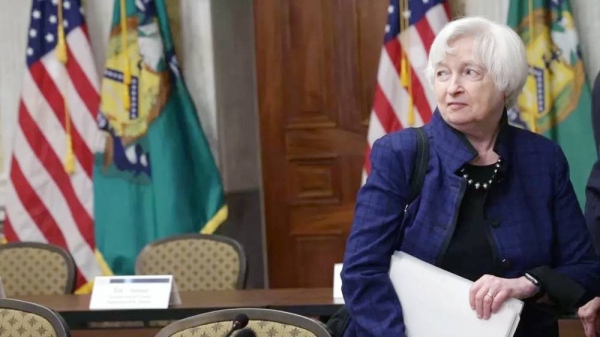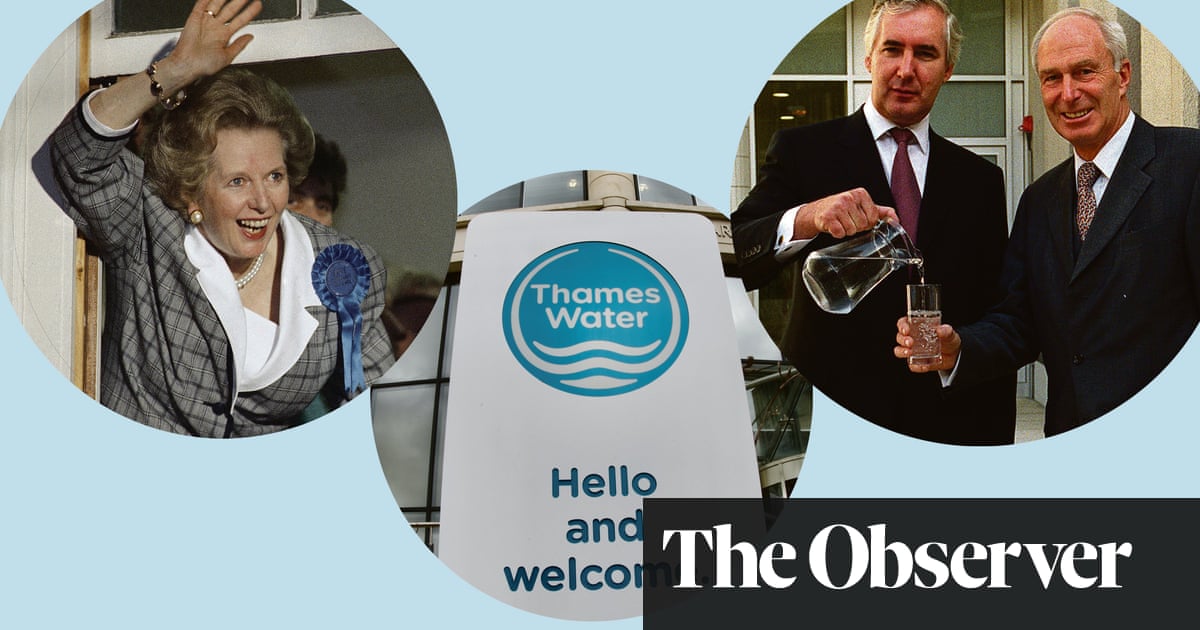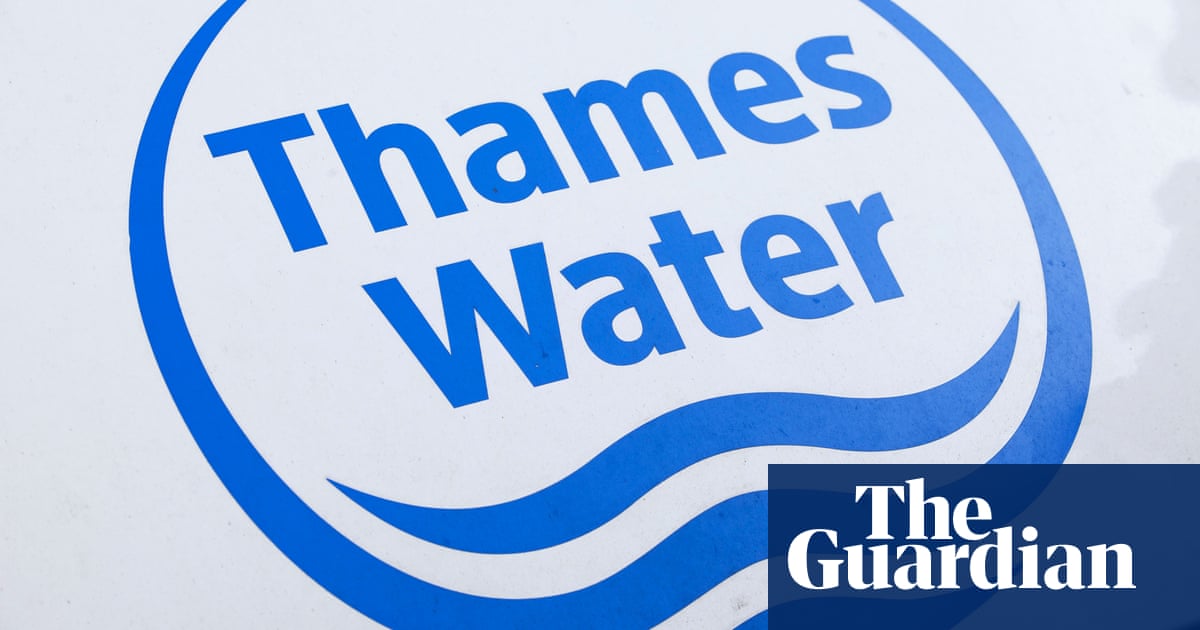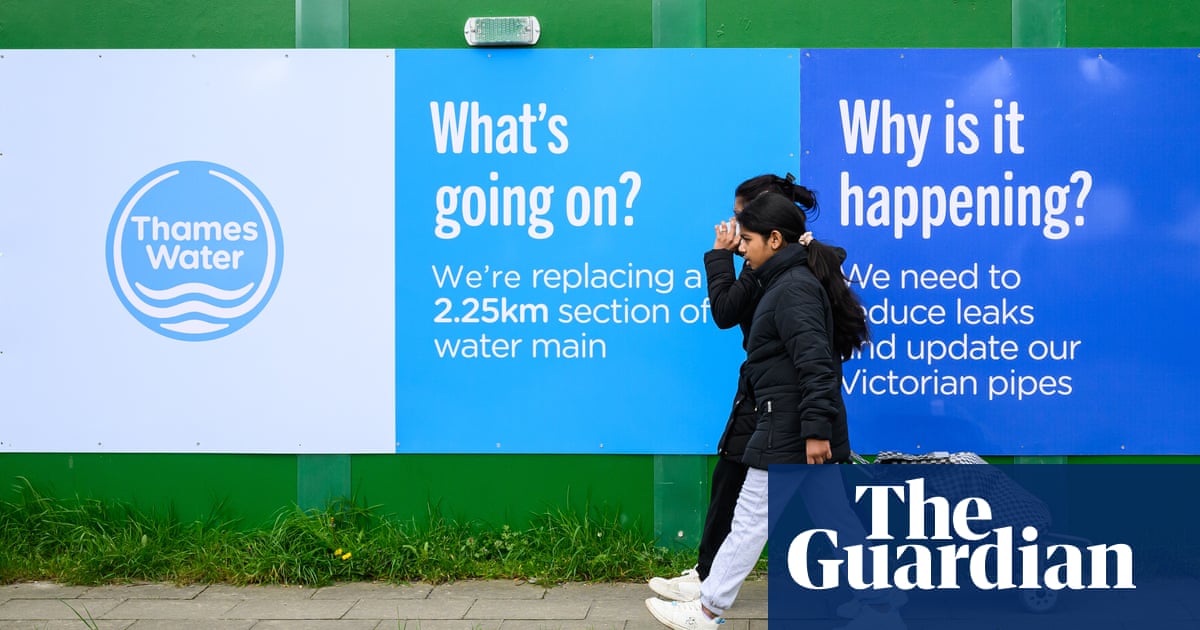
Thames Water said it intended to tap investors for fresh funds as it would run out of money by next June without a cash injection, raising fears over its potential collapse.
The debt-laden company, which has faced sustained criticism over sewage dumps, leaky pipes and extracted dividends, said it had £1.8bn, “sufficient to fund our operations for the next 11 months to the end of May 2025”.
In financial results for the year to 31 March, Thames said revenues rose 10% to £2.4bn as a result of “inflation linked” increases in the amount it charged for water and wastewater services. Profits jumped 21% driven by higher revenues and “cost discipline”.
Thames has £15.2bn of debt, up £1.3bn on the previous year, the bulk of which could be added to the public purse if the government stepped in to renationalise the troubled company. The Guardian revealed in April a contingency plan was being drawn up in Whitehall to renationalise Britain’s biggest water company if it collapses.
Thames said it was “reasonable” to assume it would have sufficient resources to continue operating until at least April 2025, but there were “material uncertainties”. These included not securing commitments for future funding, a downgrade to its credit rating or a failure to meet its legal obligations, which could trigger a default on its debts.
The situation is so severe that the new prime minister, Keir Starmer, and chancellor, Rachel Reeves, have been briefed by Whitehall officials that the poor state of Thames presents a “critical risk” to the country during their first few days in office.
Chris Weston, the chief executive of Thames who joined in January, said the company could still find a solution in the financial markets without need for government intervention, depending on decisions by its regulator, Ofwat.
He added that a temporary nationalisation “is something that is not in the interests of any of our stakeholders or the UK taxpayer.
“I can’t put any probability on whether it will or won’t happen, but it is a long way off if it were to happen. There is a lot more that we can do … to make sure that does not happen.”
Weston said “it is extremely early days”, but the company has been in touch with the new government and would have discussions “as appropriate” in the near future.
On Thursday, Ofwat will give its first view on five-year business plans submitted last year by English and Welsh water companies, including Thames.
Thames intended to contact potential investors after Ofwat’s documents had been published. Weston said a “broach church” of investors would be approached, with a formal process beginning in autumn and expected to stretch into 2025.
The Ofwat review will indicate by how much Thames will be allowed to raise bills – which the company wants to increase by 59% - and whether its £19.7bn investment plan, intended in part to fix leaky pipes and prevent sewage spills, will be approved.
The company, which serves 16 million customers in the London and Thames valley regions, said it was working on the basis that an injection of new equity was “possible” but “should no longer be assumed”.
The number of pollution incidents increased to 350 last year, up on 331 in 2022, which Thames said was driven by a deluge of higher than average rainfall. “It is a volume that our networks were never designed to cope with,” Weston said.
The slow-burn crisis at Thames Water stepped up in March, when it said shareholders – which include the pension funds USS and Omers – had U-turned on £500m of promised funding, claiming Ofwat had made the company “uninvestable”. Its parent company, Kemble, defaulted on its debt in April.
The Guardian has since revealed that Thames’s board approved a £150m dividend just hours before the announcement and Ofwat is studying the payout.
Gary Carter, a national officer at the GMB union, said: “Thames operating profits have improved so now is the time for its shareholders to back the company the equity required to cut leakage and sewage spills.
“The shareholders are starving Thames of the cash required to keep ageing assets going.”
Paul de Zylva, the senior sustainability analyst at Friends of the Earth, said: “Proper regulation means Ofwat must make Thames Water and other water companies pay for the clean-up needed without passing on higher bills to us. It also means proper fines for polluting and an end to water bosses getting high pay and bonuses for failure.”
Thames’s annual report showed Weston picked up £437,000 for his first few months in the job, including a £195,000 bonus. His predecessor, Sarah Bentley – who resigned abruptly in June 2023 – received £436,429 during her notice period.












